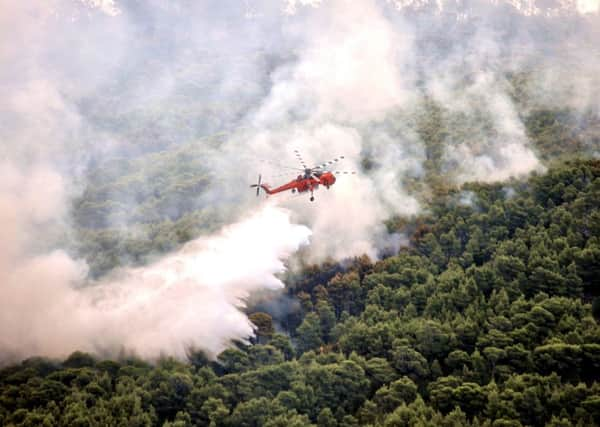Mary Church: Heat of climate change will kill thousands unless we act


A shocking 7,000 people will die in the UK each year from the impacts of heat unless government acts on the dangers of climate change.
The committee’s focus on adaptation in its recommendations reflects the grim reality that global warming is not some distant threat, but is happening now, and we must prepare to deal with the consequences of living in a world made warmer by human actions.
Advertisement
Hide AdAdvertisement
Hide AdNews of a rising death toll from climate disasters around the world that have made the headlines all too often this summer, from prolonged heatwaves in Canada and Japan, to flash floods in Laos and Cambodia, and raging wildfires in Greece and Sweden, help this reality to sink in.
While so far we have escaped some of the worst impacts in Scotland, we are not immune; private water supplies drying up in Moray and the roof of Glasgow’s Science Centre melting as the mercury hit a record 31.9C are a small taste of what is to come if we fail to address the cause of warming.
What we are witnessing now is the impact of a mere 1C of warming. The impacts of 1.5C, 2C or more will be far, far worse, with widespread disruption to food production, famine, new diseases, mass species extinction, sea level rise, the destruction of livelihoods and even entire countries. And, of course, these impacts will bring increased political instability, violent conflict and a rise in climate refugees.
But if we act now we can avert the worst consequences of climate change, and build a fairer and more equal Scotland in doing so.
What that means is accepting that ‘business as usual’ is no longer an option. It means rapidly shifting our economy away from dependency on fossil fuels in a way is fair to workers and communities.
With the publication of limp, unambitious new climate change legislation in June, Scottish Government leadership on the issue is slipping, at a time when it has never been more needed.
Targets must be significantly increased, decisions on how to deliver them made now and implemented over the next decade to do our fair share of the global response to climate change, and have any hope of avoiding its worst impacts.
Mary Church is head of campaigns at Friends of the Earth Scotland
